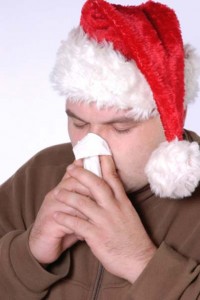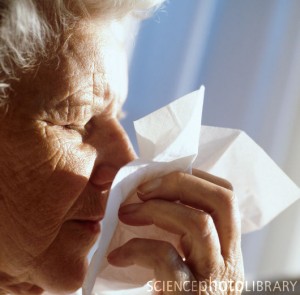 Inevitably this time of year thousands of cheerful merry makers suffer from a host of allergens uncommon to the average day.
Inevitably this time of year thousands of cheerful merry makers suffer from a host of allergens uncommon to the average day.
Everything from Christmas trees to fruitcake!
Here are a few methods for surviving this holiday season.
If your family or friends are prone to purchasing christmas trees from lots and vendors you should assume that the mold will be fare greater from these trees than if they had cut one down themselves. Either way always spray don the tree outside before bringing it in your house.
If you know that you’re allergic to mold, you could also spray the tree with a fungicide but be aware that such chemicals (especially the toxic variety) can also aggravate allergies and cause other respiratory problems. We offer M-1 Sure Cote, a clear, non-toxic, odorless mold-resistant coating that will kill mold and prevent future growth. If you decide to use Sure Cote, I suggest letting the coating dry before bringing the tree inside.
Pollen from Christmas trees is normally not a big problem for allergy sufferers (since the pines and firs found at most Christmas tree lots pollinate in the spring), but mountain cedar trees pollinate in late November and early December, so if you chop down your own mountain cedar tree, then the pollen could be troublesome – especially since one person out of every 10 is to allergic mountain cedar pollen. The main problem, however, is mold that enters the home with the tree.
Of course a fake tree is always the best and safest bet for those suffering from allergies.
Applying a quality air filter will always help regardless of the type of live tree or even with a fake tree.






